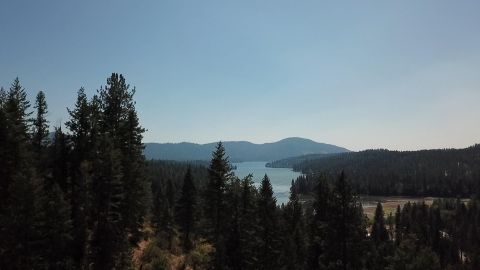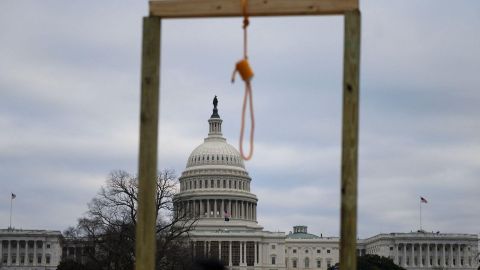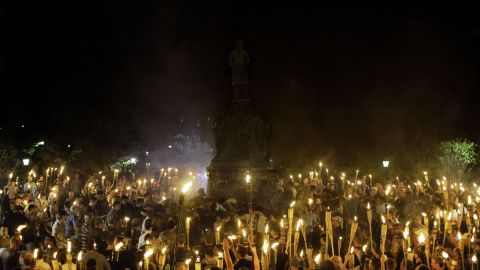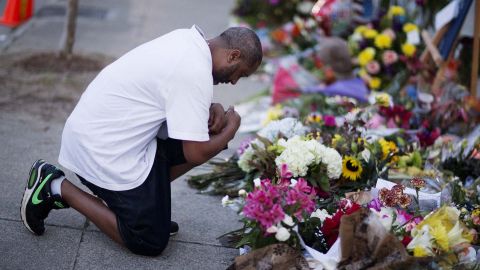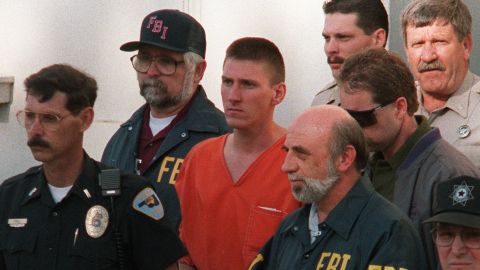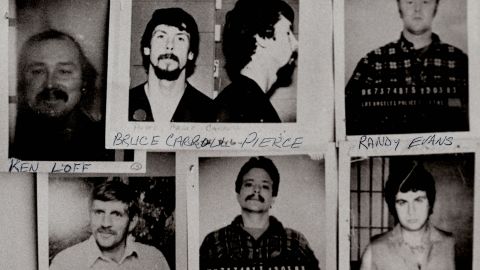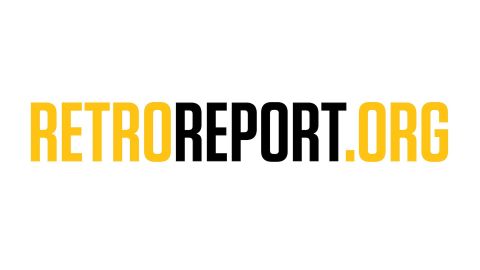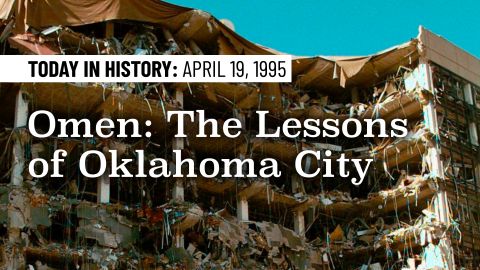RESURGENCE
President Joe Biden: Domestic terrorism from white supremacists is the most lethal terrorist threat in the homeland.
MARK POTOK, Senior Fellow, Centre for Analysis of the Radical Right: Why is the radical right growing? Why are these ideas resurging in such a dramatic way?
TEXT ON SCREEN: Demonstrators: You will not replace us!
PETE SIMI, Assoc. Professor, Chapman University; Author, “American Swastika”: We’ve been unwilling to really grapple with our history. We have to understand where this problem has been in the past and what’s kept us from addressing it.
ARCHIVAL
President-elect Barack Obama: The time has come.
POTOK: When Obama appeared on the scene, there was a massive freakout on the radical right.
BRIAN MURPHY, Former Counterterrorism Official: Domestic extremism touches on the nerves of the polarization in our country. It is used to score political points.
EXTREMISM IN AMERICA
RESURGENCE
[Cheering]
Obama: At this defining moment, change has come to America.
BISHOP BRYANT ROBINSON, JR., Macedonia Church of God in Christ: I never dreamed that I would see a person of color as the president of our nation. I never dreamed it.
Obama: To put their hands on the arc of history…
ANDREW ROBINSON, Macedonia Church of God in Christ: I was up following the results.
Obama: …and bend it once more toward the hope of a better day.
ANDREW ROBINSON: I got up and I looked out the window, and the church was ablaze.
TEXT ON SCREEN
SPRINGFIELD, MASSACHUSETTS
NOVEMBER 4, 2008
BRYANT ROBINSON: My phone rang. And the words I heard was, “They are burning our church to the ground.” And what was left was rubble, charred ruins and, well, who did this?
Reporter: Three men set a massive fire that destroyed the Macedonia Church of God in Christ.
Reporter: Prosecutors say it was a racially motivated crime, an expression of anger that an African American was elected president.
BRYANT ROBINSON: It’s devastating. To have them to declare, we did it because it was Barack Obama was elected president, just reinforced for me the hold that racism and hatred has on this country.
In the years before Barack Obama’s election, many groups on the extreme right had kept a low profile. But that was about to change.
POTOK: People on the extreme right understood that the percentage of white people in America was dropping every year. So when Obama appeared on the scene, there was a massive freakout on the radical right.
SIMI: On election night, the largest white supremacist web forum shut down. The server crashed because they were getting so much traffic.
Reporter: Hate crimes are on the rise. Burning crosses and Black effigies hanging from nooses have been found.
Reporter: 50 new militia training groups have sprung up in less than two years. Recent attacks carried out by lone wolf actors motivated by extremist ideology.
DARYL JOHNSON, Former Sr. Analyst, Dept. of Homeland Security: We started seeing white supremacist groups holding rallies. And in these rallies the number of participants continued to grow.
Daryl Johnson was part of a small team at the Department of Homeland Security that tracked domestic extremism. In early 2009, while the government was focused on the threat from overseas, he wrote a report warning that the threat at home was re-emerging.
JOHNSON: The report was a warning that you better start preparing yourselves for this shift in the threat landscape from Al-Qaeda to more homegrown violent extremism.
Man: The government is our first enemy.
The report warned conditions in the country appeared similar to the 1990s, when a weak economy, illegal immigration and a crackdown on gun ownership helped spark a rise in extremism.
Man: Nobody in America wants the illegals here. Nobody. Except for these corrupt politicians in that building back there.
The report was quickly leaked and Johnson found himself at the center of a political firestorm.
Reporter: Outrage tonight over an intelligence report.
Reporter: …prompted all sorts of comments and criticism online.
Man: It really smeared large groups of people.
Man: I would like him to be fired from the Department of Homeland Security.
JOHNSON: When I got back in the office, utter chaos had erupted. The primary accusations were the term “right wing” equated to conservatives. They thought it was unfairly demonizing Republicans, that we were going to be spying on all conservatives.
Radio Host: This is nothing but a partisan hit job filled with lies and innuendo that portrays any conservatism as right-wing extremism.
The section that prompted the most outrage was a warning that extremists would try to recruit military veterans.
Congressman: They served their nation, and they have left their military service, and they’ve been good citizens of this congressional district, and yet they’re lumped in with Timothy McVeigh.
Congresswoman: Is this America? Is this what we’re used to? We are normal God-fearing people who love this country. And now we’re the threat?
THOMAS O’CONNOR, Former Special Agent, F.B.I.: Politically you can’t say that the military is being recruited by extremist groups. People working domestic extremism, we all knew that that report was accurate.
HHS Secretary Janet Napolitano: This is very consistent with other reports issued before Obama was president. They’re being issued now.
O’CONNOR: The recruitment of active and retired military was a goal for groups such as the National Alliance in the ’80s and ’90s and 2000s. It always has been.
Under pressure, the Obama administration apologized to veterans…
NAPOLITANO: I’ve apologized for that report. It was not authorized to be distributed.
… withdrew the report and restructured Johnson’s unit.
JOHNSON: We got rid of the domestic terrorism focus and they reassigned those in my former unit to look at Al-Qaeda and critical infrastructure threats.
The Department of Homeland Security, which was also facing accusations of downplaying the threat from Islamic extremism, has defended its handling of the report, calling it thinly sourced and overly broad. And both Homeland Security and the F.B.I. say they did continue to gather intelligence on domestic terrorism. But 13 years later, the report has been called an example of how politics undercut the fight against extremism.
SIMI: It quashes this window of an opportunity we have to recognize this problem because it sends the message that this is an issue that we can’t really have a discussion about.
O’CONNOR: The mere fact that, you know, the report got pulled back really said, is the government completely behind this effort to, to fight domestic terrorism?
POTOK: There was a great reluctance among many officials to say what was obvious, which was, the radical right was growing, and it was becoming more lethal, more dangerous by the day.

